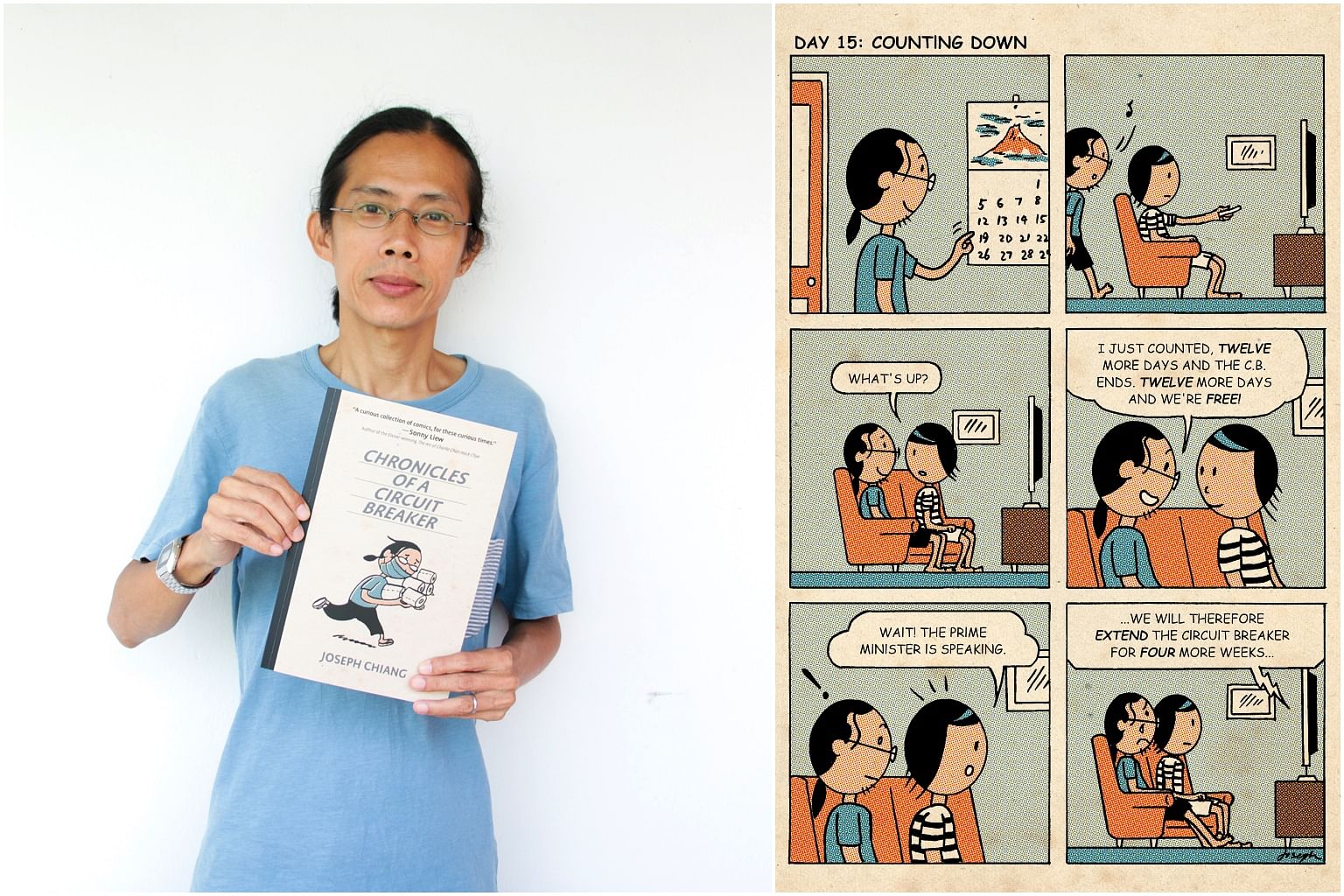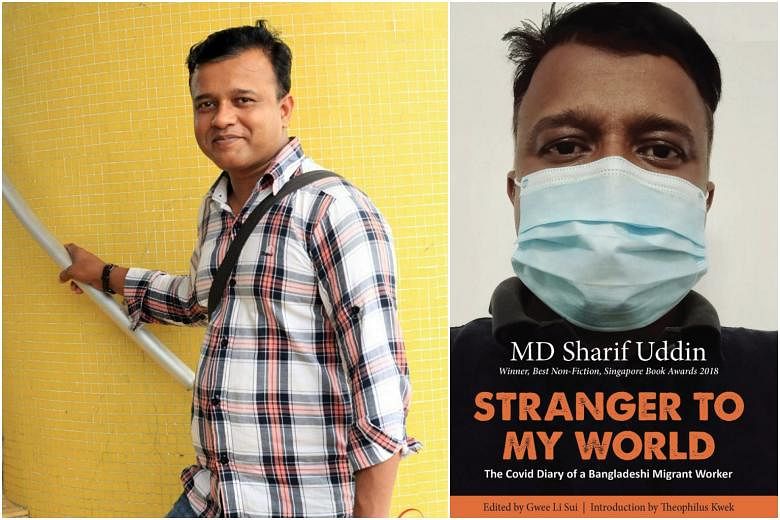NON-FICTION
STRANGER TO MY WORLD
By Md Sharif Uddin, edited by Gwee Li Sui
Landmark Books/Paperback/274 pages/$25.68/Books Kinokuniya
It is hard enough to be an author trying to release a book in a pandemic.
It is especially difficult if you are a migrant worker who has been stuck in a dormitory for more than a year, unable to leave freely, let alone attend your own book launch.
"It's a very poor life," says Bangladeshi construction safety supervisor Md Sharif Uddin, 42.
At present, he is allowed to leave his dormitory only to go to work and, occasionally, a recreation centre.
He has published his second memoir, Stranger To My World, based on a diary he kept during the circuit breaker last year, edited by Singaporean poet Gwee Li Sui. It has already made The Straits Times bestsellers list for non-fiction.
"I can't go anywhere now, but I can write," says Sharif.
"I want to talk to people. Maybe this book can help them understand what we need, what we want, what goes on in our minds."
Migrant workers have been among the hardest-hit by the pandemic, forming the bulk of Singapore's cases.
In December last year, the Ministry of Manpower reported that almost half of the migrant workers living in dormitories here have had a Covid-19 infection.
Sharif was one of them. Last July, his serology test - which identifies those who have been infected by detecting the presence of Covid-19 antibodies in blood samples - came back positive.
Sharif, who is married with a son, 11, has worked in Singapore for 12 years. He previously ran a bookshop in Rangpur, Bangladesh, but had to close it after the local government declared that the building which housed his shop was being used illegally.
In 2017, he published his memoir Stranger To Myself, written in Bengali and translated into English. The year after that, he became the first migrant worker to win the Singapore Book Award for Best Non-Fiction Title.
His second book, a mix of diary entries and poems, documents his experiences in April and May last year, as he endured dormitory lockdown and hospital visits, as well as time in community care facilities and a hotel quarantine.
It records his rocketing anxiety as cases spiked in the dormitories, his grief at hearing of other workers' deaths and the mental anguish he felt in isolation.
"Locked in four walls," he writes in one poem, Darling, "I'm getting lost/I'm getting old."
The latest rise in Covid-19 cases here has him worried that even the scant freedom available to dormitory residents will be withdrawn. Last month, a new infection cluster emerged at Westlite Woodlands dormitory.
The pandemic starkly highlighted the living conditions of migrant workers here - Sharif, for instance, recalls spending seven years in a Kallang dormitory where 31 men bunked in one room and he and a hundred others bathed by dipping their mugs into a water tank.
"No privacy, no anything," he says.
Despite numerous calls to action over the past year, he is not convinced much has changed for migrant workers.
"Covid-19 has had no effect on employers," he writes. "I still have breakfast on the pavement in the morning, stale food at noon and a long wait for the lorry at the end of each workday. Everything is the same as before."
In both his books, he has railed against the transport of migrant workers in the backs of lorries.
The long-standing safety issue resurfaced in Parliament after two lorry accidents last month left two workers dead and more than 20 injured.
"If people are fined for not wearing seat belts in a car, then migrant workers who come and go in lorries without protection are not human beings," he writes. "What is the value of our lives?"
He hopes his book can change the minds of readers - employers, especially - about migrant life. "If people can take my words, give solutions, I will have had a success."
COMICS
CHRONICLES OF A CIRCUIT BREAKER

By Joseph Chiang
Epigram Books/Paperback/80 pages/$20.22/Huggs-Epigram Coffee Bookshop
Artist Joseph Chiang used to draw comics in the 1990s, but stopped to focus on his printmaking career. Last year, during the circuit breaker, he began doodling them again.
The result was Chronicles Of A Circuit Breaker, a collection of comics that record life in this period, from the hoarding of toilet paper to the frustrations of sharing workspace with your family.
"I am a very pessimistic person by nature," says Chiang, 54, who was well aware of the pandemic's grim reality - deaths, job losses and more - when he began his project.
"The comics made me search for a humorous and meaningful side to things. Working on this has been a kind of coping mechanism for me."
Chiang is the founder of print studio Monster Gallery and the Young Printmakers League, a mentorship programme.
As he was unable to conduct workshops during the circuit breaker, his income fell to zero. He started putting together the comics to tap the National Arts Council's Digital Presentation Grant.
The comics are semi-autobiographical - he depicts a version of himself, as well as his wife, 47, who works in the logistics industry, and daughter, 22.
This is a book he is hoping will not have a sequel, even though Singapore's return to heightened restrictions this month and next could supply him with fresh material. "I want to do a book about the new normal. Life post-Covid-19. I want that instead."


